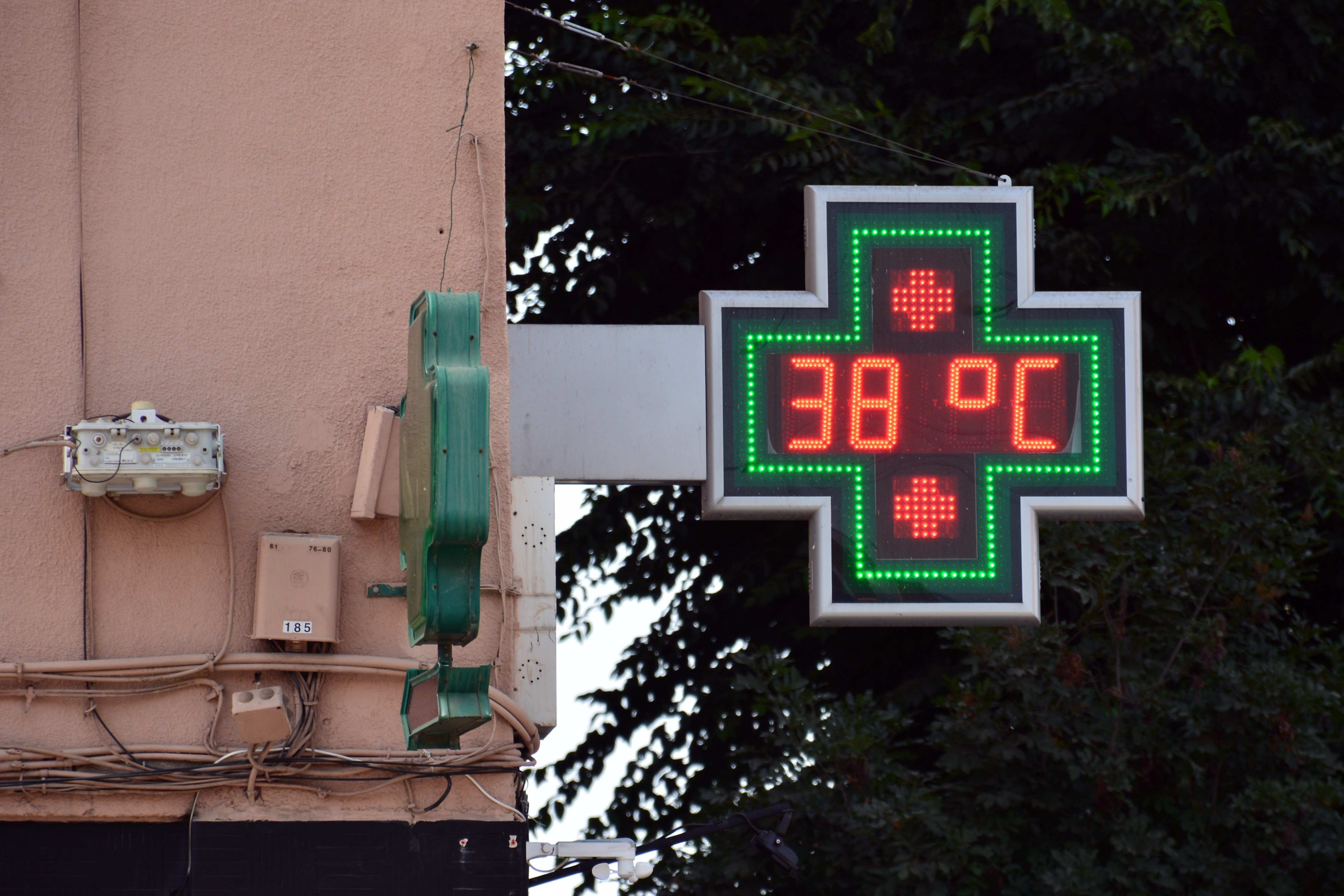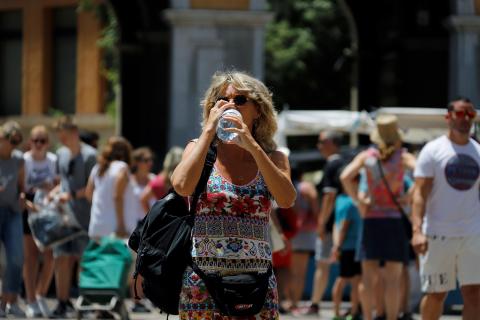Extreme temperatures increase mortality due to the health effects of heat, but how do they relate to specific causes of hospitalisation? A study published today in the journal Environmental Health Perspectives analyses hospital admissions related to high summer temperatures in Spain over more than a decade, between 2006 and 2019, in 48 Spanish provinces. The results showed an impact on hospitalisations related to obesity, renal and urinary failure and sepsis, among other causes.
‘Intense heat, combined with insufficient fluid intake, can lead to dehydration, which can damage the kidneys, promote the formation of kidney stones and increase the risk of urinary tract infection,’ explained Hicham Achebak, ISGlobal researcher at Inserm (France) and co-author of the study, at a briefing organised by the Science Media Centre Spain. ‘In people with obesity, heat loss through perspiration is hindered by body fat, which acts as an insulator and makes them more susceptible to high temperature-related disorders,’ he added.
In people with obesity, heat loss through perspiration is hindered by body fat, which acts as an insulator and makes them more susceptible to heat-related disorders.
Hicham Achebak
The research included data from more than 11.2 million hospital admissions between June and September. The study also showed significant differences according to age and gender. For example, children under the age of one and those over 85 were the most susceptible groups. In addition, Achebak said that ‘on the hottest days, men showed a higher risk of hospitalisation for injuries than women’, which he associated with ‘risky behaviours such as doing more outdoor work’.
The researcher recalled the importance of keeping the body hydrated by drinking enough water. ‘There is not always a reliable early indicator of the body's need for water and many people, especially older people, do not feel thirsty until they are dehydrated, so it is important that they drink even if they do not feel thirsty.
Analysis of variables such as contamination and humidity
In an independent reaction collected by Science Media Centre España, the president of the Spanish Society of Epidemiology, Óscar Zurriaga, assesses the study as follows: ‘The main contribution is in providing evidence on the effects of high temperature on some causes of morbidity that, until now, had not been cited among those affected. And also in the analysis of other variables of interest such as atmospheric pollution, relative humidity or the duration in days of the rise in temperature, although the results limit the impact of these other variables to a small number of diseases’.
The epidemiologist and lecturer at the University of Valencia stresses that the study is limited by the availability of data on hospital admissions that the National Institute of Statistics allows, both in terms of territorial scope and in the identification of the people admitted. ‘For this object of study it is very relevant, as has recently become clear in the new map for activating heat alerts in Spain, to take into account territorial groups that are smaller than the provinces’. Zurriaga stresses that the authors have tried to minimise this deficit by analysing the association between an indicator of the degree of rurality/urbanity of the province and the risks of heat-related morbidity.




